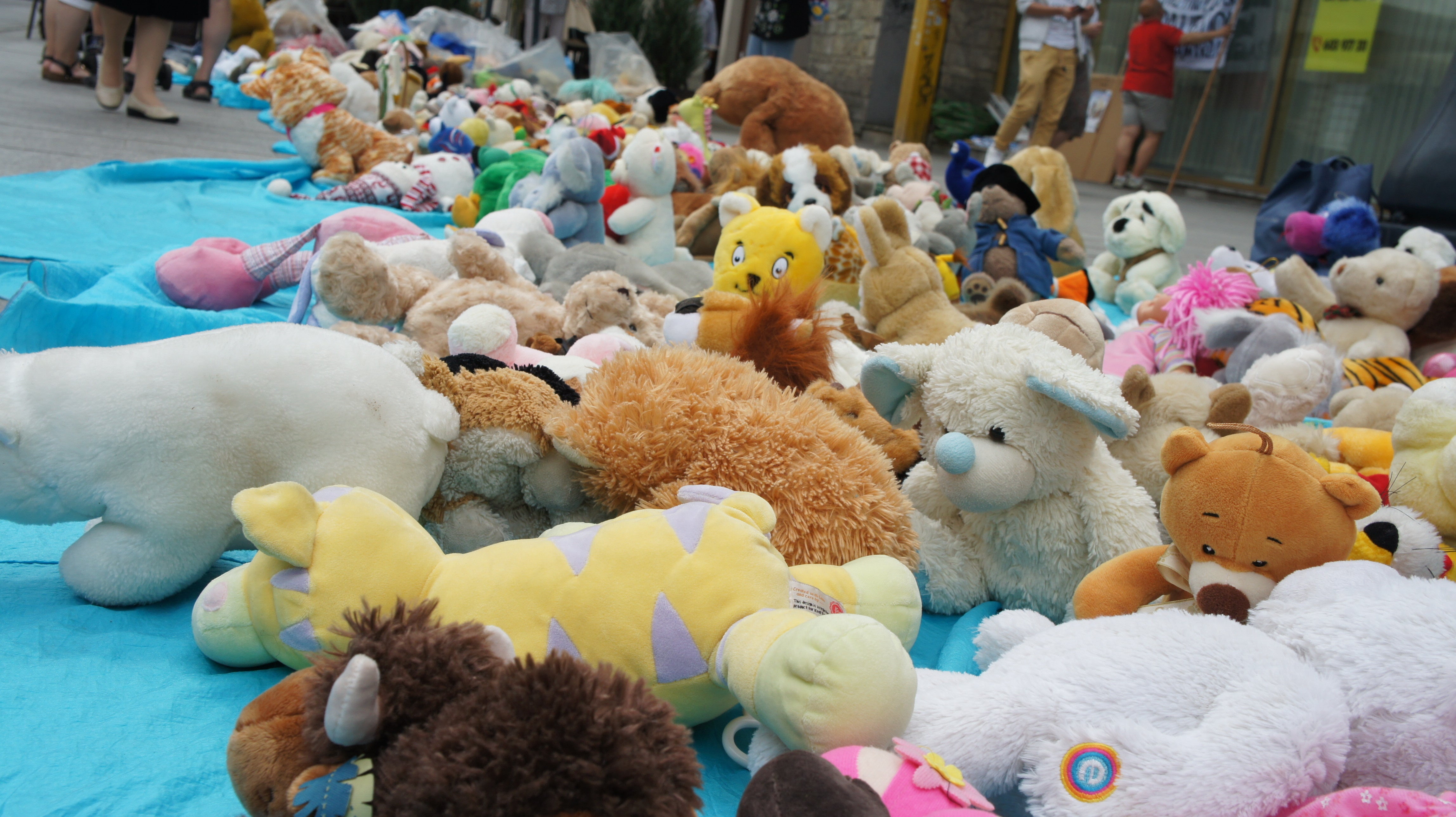In 2020, around 57 million tonnes of polyester were produced globally. This material will take over 200 years to break down in a landfill. China is both the biggest producer and largest consumer of polyester fibers and polyester goods. Despite the fact that many global consumers are demanding greener products, the polyester industry continues to grow rapidly.
Polyester is cheap to produce and easier to manipulate than natural fabrics, so it is used in an astonishing amount of products from clothing, to kids toys, to sports equipment and everything in between. Since polyester is a form of plastic, each polyester product made will most likely remain on Earth as waste or pollution long after it is done being used.
The Polyester Problem

Polyester production poses enormous concerns for people, the environment, and wildlife. Aside from the more obvious issues, like ever-expanding plastic pollution, polyester is also saturated with chemicals, highly unlikely to be recycled, and a great home for bacteria. These are all great reasons why you should ditch polyester plush toys and products that are made in China.
1. Buying Polyester Goods Supports the Petrochemical Industry
Polyester is a form of plastic created from a reaction between petroleum, coal, air and water. To create polyester fabrics or materials, plastic PET pellets are melted then passed through machines that mold the heated plastic into threads or fibers. This process uses massive amounts of energy and releases toxic chemicals into the air and water supplies.
In countries like China where there are few environmental regulations, polyester factories may have zero protocols in place to manage the toxic waste produced. Antimony, for example, is used as a catalyst in the production of polyester and can leak into the environment if uncontrolled. The chemical has been proven to cause cardiovascular irregularities in humans after long-term exposure.
2. Polyester Products Release Microplastics
Each time you wash your child’s polyester teddy bear or t-shirt, small particles known as microplastics are released. It’s impossible to avoid this shedding of microplastics, and it is also impossible to collect them with conventional washing machines. The microplastics are therefore released into our water supply and go on to spread through all parts of the environment. At this point, microplastics have been found in virtually all ecosystems, from Mount Everest to extremely remote parts of the ocean.
Since microplastics have managed to disperse into even isolated parts of our environment, they pose a risk for the health of wildlife and also for humans. Animals like fish or livestock can end up consuming microplastics from their habitats, which means the same plastics can end up in our own food as well. Eating foods that are contaminated with microplastics can change our chromosomes and cause problems like cancer, infertility, and obesity.
3. Most Polyester Will Never be Recycled
In the past, fabric goods like clothing and kids toys were made from all natural materials like wool, cotton, or silk. That meant that at some point after the item stopped being used, it would eventually break down and decompose back into the environment. Natural fibers are easier to process and recycle, and can be converted into new garments or goods. The vast majority of polyester items are made from virgin polyester, and less than 1% of these goods will be recycled.
While some companies have made attempts at recycling polyester, the fact that it is a plastic product makes recycling much more difficult. In order to recycle and reuse polyester, it must be heated up and melted back down into new fibers. This cannot be done too many times since the plastic breaks down a little more each time it is heated. Additionally, the process of reheating the polyester releases toxic cancer-causing chemicals into the environment. Polyester that is not recycled can take anywhere from 20-200 years to decompose, therefore most of it ends up in landfills or as environmental pollution.
4. Polyester Products are Coated in Toxic Chemicals
Since polyester is made from oil, it is possible for it to ignite and melt, which can cause serious burns. To make polyester goods “safer,” they are coated in toxic flame retardant chemicals. This includes kid’s toys and clothing made from polyester. Some of the chemicals commonly used have been proven to cause cognitive issues, reduced fertility, and even cancer.
Although these chemicals may be banned in the US, products that come from places like China are often not required to meet health or safety standards, and still end up in stores in the US. Products from China may contain highly toxic chemicals, and will not have warnings or disclosures on the product’s label.
5. Polyester Harbors Bacteria
While organic cotton is naturally hypoallergenic, polyester fabrics are actually proven to harbor and support bacterial growth. The bacteria Micrococcus is one of the germs that seems to love polyester fabrics and is responsible for the bad smell that sticks to exercise clothing or other products that come in contact with sweat. Some manufacturers have experimented with antimicrobial agents in an attempt to make polyester less inviting for bacteria. However scientists are still unsure how these agents can affect humans, and they also have been blamed for causing environmental damage.
Ditch Polyester for a Cleaner, Greener Tomorrow
Bears for Humanity chooses not to support the polyester industry or contribute to any of the damage it causes. We encourage our customers to avoid buying toxic polyester goods from China or any other country that continues to manufacture this destructive product.
We use 100% organic cotton to make our plush bears and natural substances to dye them. Organic cotton is naturally flame retardant and passes all safety tests without any use of added flame retardants. Many children can have allergic reactions or skin irritation from chemical flame retardants. Our bears are completely chemical-free and safe for even the most sensitive child.
So many products we depend on daily are made with polyester. It has gotten to the point where this petrochemical product has infiltrated nearly all aspects of life, so avoiding it takes concentrated effort. Have a look at which polyester products in your life can be replaced with a more sustainable alternative. It is up to us all to say no to polyester goods and demand safer, natural products especially when they will be used by our children and families.




